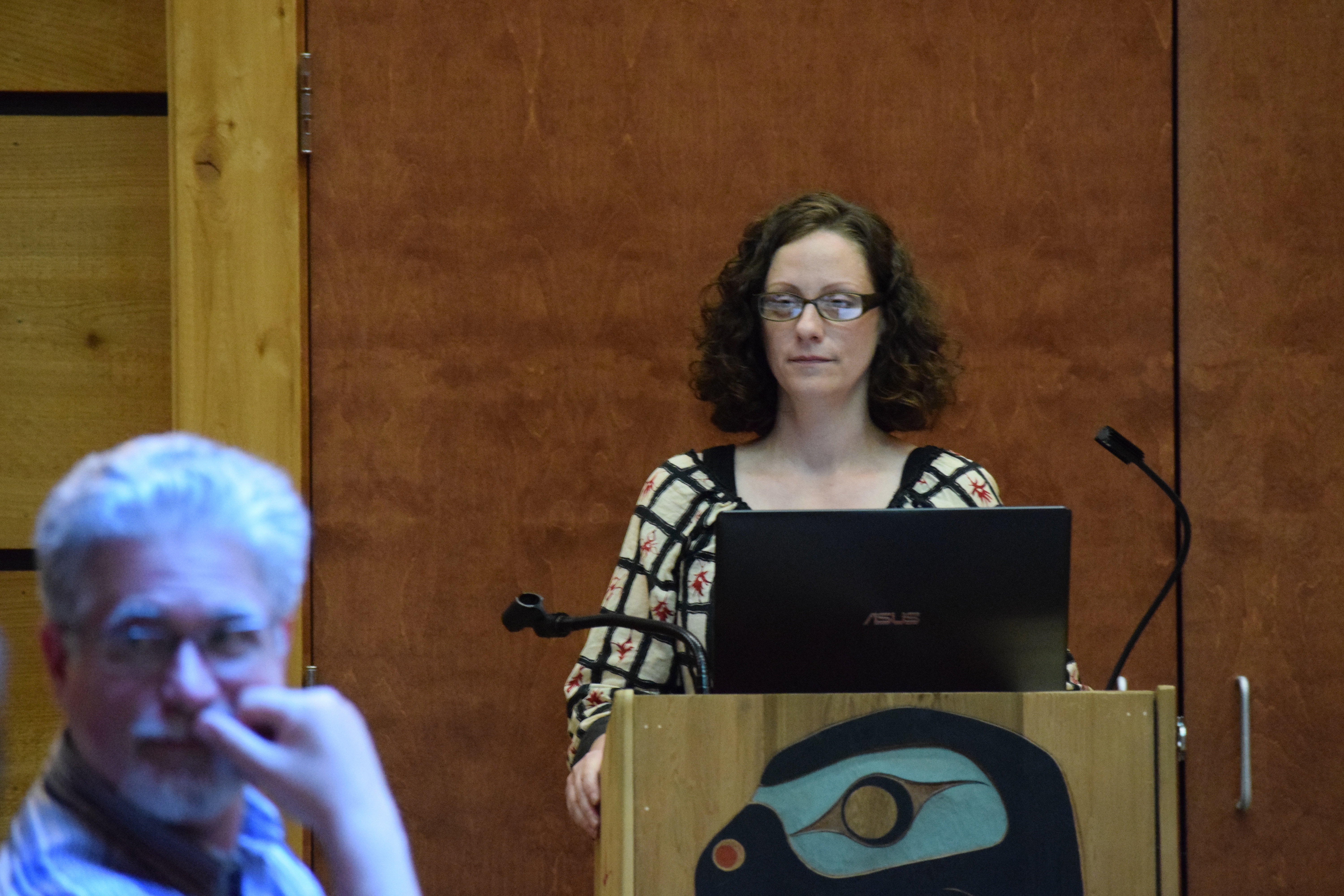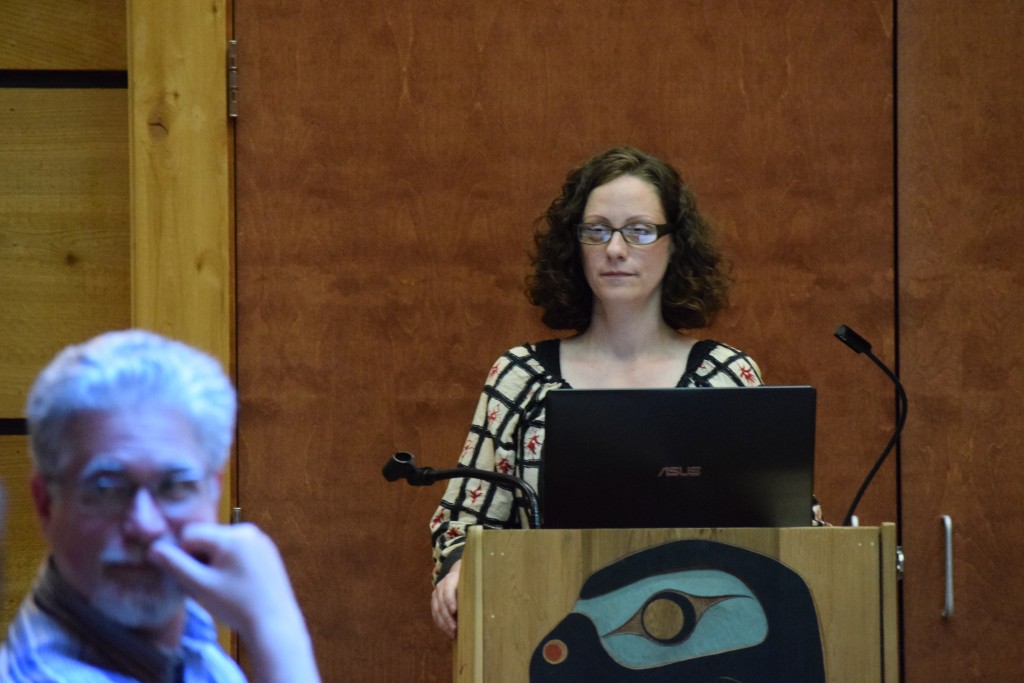
By Zak Hoskins
April Watkins, the first ever graduate from the honors program, presented her capstone project at the Longhouse, Thursday, June 4, at 4 p.m.
Watkins’ research project focused on colonialism in education and the lack of local tribal history in education.
“I don’t think the classroom should be in a bubble. I believe education should take place in the community. The level of cultural illiteracy in the education system is inexcusable,” Watkins said.
The honors program, now in its second year, has 20 participants with a wide variety of student topics.
Students take a range of classes for the honors program and must work on a capstone project, the key feature of the honors program.
Over the course of a year, the student works on the project with a faculty mentor— English Professor Matt Teorey in Watkins’ case—on a project that caters to the their interests.
“Really I was mainly a sounding board, she would bring her current thoughts and ideas, and I would help brainstorm with her about ways of thinking on the topic she was working on,” Teorey said.
“I have worked with April on her project for the last two quarters, and she will be the first Honors student in the new program to complete a project.”

Bruce Hattendorf looks on. Photo by Zak Hoskins
“I have been very pleased with April’s work and excited to see how her project idea has developed over the course of the year,” said Bruce Hattendorf, Associate Dean of Arts and Sciences.
“The really exciting things about these projects are that students have an opportunity to really dive into an area of interest and explore it thoroughly. April has brought both passion and sustained critical thinking to the development and completion of her project,” Hattendorf added.
One of Watkins’ biggest influences on campus was Kate Reavey, her former English instructor. Reavey was moved by Watkins’ presentation and her dedication to her work.
“To take her scholarly research and shape that thoughtfully into specific and practical changes in curriculum in the K-through-12 classrooms, she will help challenge stereotypes and help encourage equality in the classroom,” Reavey said; in regards to the application of Watkins’ work.
